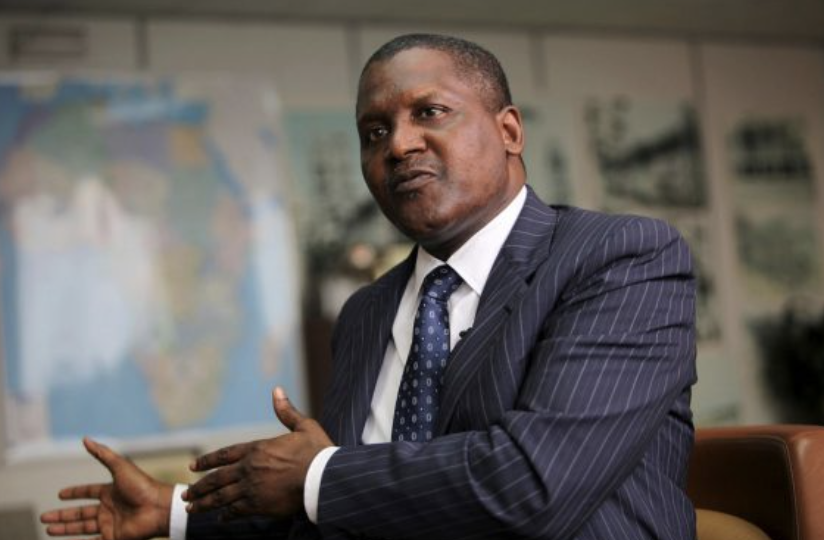In an intriguing twist of financial fate, two of the world’s most prominent and esteemed businessmen, Aliko Dangote and Johann Rupert, currently share a striking resemblance in their net worth. This development has captured the attention of investors, economic analysts, and business enthusiasts worldwide, prompting discussions about their respective contributions and how their fortunes reflect broader economic contexts.

The Titans of Industry
Aliko Dangote, hailed as Africa’s most formidable industrial magnate, is the founder of the Dangote Group, a conglomerate with interests ranging from cement production to telecommunications. His relentless entrepreneurship has not only placed him at the helm of corporate Africa but also endeared him as a benevolent philanthropist.
Across the continent, Johann Rupert, the South African mogul, has deftly wielded his influence through Richemont, a luxury goods holding company. Richemont’s portfolio includes brands like Cartier, Montblanc, and a myriad of exclusive labels that speak to Rupert’s penchant for style and sophistication.
Detailed Financial Landscape
The current parity in Dangote’s and Rupert’s net worth is a confluence of global economic trends and strategic business maneuvers. Their fortunes, each valued at approximately $12 billion, have been meticulously accumulated through astute investments, robust market positioning, and innovation within their respective industries.
- Dangote Group’s Cement Focus: The cornerstone of Dangote’s empire lies in cement manufacturing, a sector that has seen exponential growth given Africa’s urbanization and infrastructural demand. Consistent production capacity expansion has propelled the Dangote Cement to its vaunted position as Africa’s largest cement producer.
- Rupert’s Luxury Empire: As the custodian of Richemont, Rupert has ensured that luxury reverberates through the trends he sets. With continued emphasis on high-end jewelry and watches, Rupert has cleverly navigated the nuances of consumer behavior, presenting coveted experiences that attract affluent buyers globally.
Shared Insights on Wealth Creation
What is remarkable about Dangote and Rupert sharing the same net worth is not just the number itself but the narrative of entrepreneurial spirits transcending geographical constraints. Their mutual wealth highlights the diversity of avenues through which prosperity can be harnessed. It speaks to the tenacity required to build enduring legacies and the foresight in recognizing future market needs.
Diverse Approaches: While Dangote anchors his success in raw material industries, Rupert capitalizes on the human penchant for luxury. Both, however, exemplify an enduring commitment to quality and customer satisfaction as bedrocks of sustainability in business. Each man’s journey resonates with fledgling entrepreneurs looking up to these giants for inspiration.
The Wider Economic Implications
In an era where the fluctuation of wealth among billionaires is a daily spectacle, the parity between Dangote and Rupert offers a rare moment to ponder the economic implications of such enormous affluence. The magnitude of their wealth underscores the potential positive impact these billionaires can have through their business ventures and philanthropic endeavors.
- Job Creation: Both Dangote and Rupert’s enterprises are major employers within their home continents. By expanding industries, they contribute to reducing unemployment, thus fostering economic growth.
- Infrastructure Development: In Africa, Dangote’s investments in cement and related industries provide essential materials for infrastructure development, thereby promoting sustainable urban growth.
- Philanthropy and Social Investments: Beyond profit, these billionaires have shown a commendable commitment to philanthropy. Dangote’s substantial donations towards health and education initiatives have made impactful changes in African societies. Similarly, Rupert’s contributions to conservation efforts showcase a dedication to ecological stewardship.
The Role of Billionaires in Economy
While the notion of two individuals possessing such vast fortunes might spark debates about wealth distribution, it undeniably draws attention to the positive ripple effects that thoughtful investments can elicit in an economy. These billionaires, through their colossal endeavors, serve as catalyzers for economic dynamism.
In conclusion, the shared net worth of Aliko Dangote and Johann Rupert is more than just a numerical coincidence. It is an emblem of how strategic investments and passionate entrepreneurship can lead to transformative changes in society. Greater attention to how such wealth is wielded could unlock unimaginable potential in improving global economic and social landscapes.